Tag: House of Lords
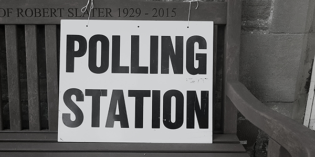
General election 2019: what are the parties saying about electoral reform?
During this general election campaign, there has been a disappointing lack of focus on what is required to reform democracy in the UK, when the public think it needs a lot of improvement. Ian Simpson from the Electoral Reform Society assesses which reforms have been promised in the parties’ manifestos, and argues that they should be given greater attention, given the lack of public trust in our democratic institutions.
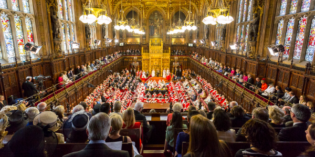
When parliaments’ second chambers are reformed and the implications for democracy
In recent years there have been several attempts by Western European governments to reform second chambers, including in the UK, though the majority of proposals have failed to pass. Michelangelo Vercesi assesses the conditions when such reforms are proposed, and finds that they are often instigated during times of democratic strain when the governing party wishes to reduce the number of veto players. However, the reforms tend to fail when there is not a broad consensus for the proposals, which has implications for considering when a democracy is able to instigate reforms.

Brexit has shown the limits of Britain’s broken ‘Westminster model’ of politics
The results of the recent European Parliament elections demonstrate how the traditional model of UK politics based on two ‘main’ parties is fracturing under the pressures of the Brexit process. Jess Garland sets out some proposals for reforming the system in line with voters’ wishes for a more cooperative style of politics.
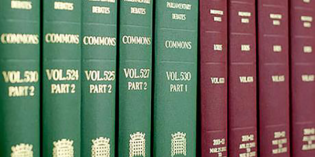
Democratising Hansard: continuing to improve the accessibility of parliamentary records
The official, substantially verbatim report of what is said in both houses of Parliament is an essential tool for ensuring democratic accountability. This record, Hansard, contains a wealth of data, but it is not always fully accessible and easy to search. Lesley Jeffries and Fransina de Jager explain how a new project, Hansard at Huddersfield, aims to improve access to the Hansard records and contribute new ways of searching the data.
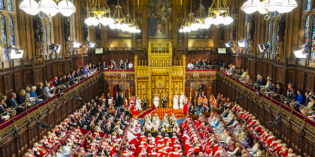
How undemocratic is the House of Lords?
For our 2018 Audit of UK Democracy, Sonali Campion, Sean Kippin and the Democratic Audit team examine how the UK’s deeply controversial current second chamber, the House of Lords, matches up to the criteria for liberal democracies with bi-cameral legislatures. Now an almost-all appointed Chamber, the Lords has achieved recent prominence on Brexit and tax credits by exerting some bipartisan influence moderating Commons proposals. However, its members remain creatures of patronage, and wholly unaccountable to the UK’s citizens. All parties except the Tories now support its replacement by an elected Senate. Increasingly only the Tories and Liberal Democrats are still appointing any peers – although there are also a fifth of peers who are ‘crossbenchers’, not taking a party whip.
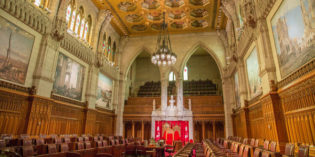
The UK and Canada: democratic legitimacy could matter more than geographic representation in the upper chamber
Upper chambers have the potential to represent different geographic groups within a multinational state, and so accommodate minority identities. However, research by Mike Medeiros, Damien Bol and Richard Nadeau indicates that, though there is support for democratic reform of the House of Lords and Senate in Scotland and Quebec respectively, there is, in fact, greater support for central democratic reform than for subnational representation.
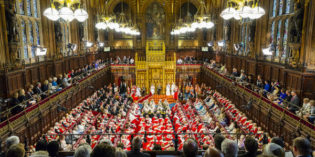
The Lords are unlikely to derail or overly delay the passage of the EU (Withdrawal) Bill
Richard Reid explains why the House of Lords is unlikely to derail or overly delay the passage of the European Union (Withdrawal) Bill that is about to be introduced into the Chamber. He contends that while the mood of the House regarding Brexit is difficult to tell, it seems that there is little appetite for a direct collision with the government in the form of blocking or wrecking the bill. However, we are likely to see some successful amendments regarding the acquis, devolution and Parliamentary sovereignty that will win support from across the party groupings.
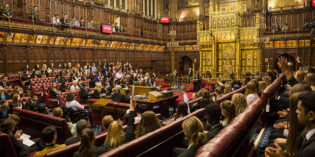
The tax credit row highlighted a fundamental imbalance in our political system: here’s one way to redress it
The events leading to the Strathclyde Review highlighted a fundamental problem with our democratic system, namely that it is currently skewed too far in favour of representation, with little to ensure individual government actions are aligned with public’s preferences, writes Harry Farmer. He argues if this is to change, reform of the House of Lords […]

The 2016 Queen’s Speech and the Constitution
Mark Elliott looks in detail at the at the constitutional proposals in the latest Queen’s Speech. He writes that although they have the potential to be highly significant it is unclear whether they will amount to much as the Government’s thinking appears to be underdeveloped. Similar PostsTheresa May’s case for withdrawal from the ECHR: Politically […]
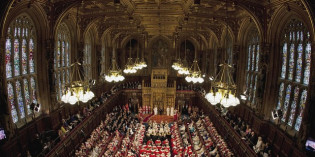
Parliament, Government and Secondary Legislation: Lords Select Committees respond to the Strathclyde Review
Following the House of Lords’ refusal to allow the government to enact secondary legislation during the row over tax credits cuts last year, the government set up the Strathclyde Review, which suggested reforms which could alter the balance between the government and the two houses of parliament. Here, Mark Elliott welcomes calls from various parliamentary committees […]


 Democratic Audit's core funding is provided by the Joseph Rowntree Charitable Trust. Additional funding is provided by the London School of Economics.
Democratic Audit's core funding is provided by the Joseph Rowntree Charitable Trust. Additional funding is provided by the London School of Economics.